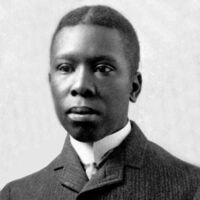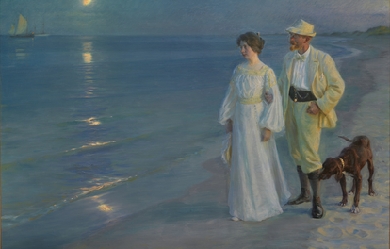To the South
ON ITS NEW SLAVERY
Heart of the Southland, heed me pleading now,
Who bearest, unashamed, upon my brow
The long kiss of the loving tropic sun,
And yet, whose veins with thy red current run.
Borne on the bitter winds from every hand,
Strange tales are flying over all the land,
And Condemnation, with his pinions foul,
Glooms in the place where broods the midnight owl.
What art thou, that the world should point at thee,
And vaunt and chide the weakness that they see?
There was a time they were not wont to chide;
Where is thy old, uncompromising pride?
Blood—washed, thou shouldst lift up thine honored head,
White with the sorrow for thy loyal dead
Who lie on every plain, on every hill,
And whose high spirit walks the Southland still:
Whose infancy our mother’s hands have nursed.
Thy manhood, gone to battle unaccursed,
Our fathers left to till th’ reluctant field,
To rape the soil for what she would not yield;
Wooing for aye, the cold unam’rous sod,
Whose growth for them still meant a master’s rod;
Tearing her bosom for the wealth that gave
The strength that made the toiler still a slave.
Too long we hear the deep impassioned cry
That echoes vainly to the heedless sky;
Too long, too long, the Macedonian call
Falls fainting far beyond the outward wall,
Within whose sweep, beneath the shadowing trees,
A slumbering nation takes its dangerous ease;
Too long the rumors of thy hatred go
For those who loved thee and thy children so.
Thou must arise forthwith, and strong, thou must
Throw off the smirching of this baser dust,
Lay by the practice of this later creed,
And be thine honest self again indeed.
There was a time when even slavery’s chain
Held in some joys to alternate with pain,
Some little light to give the night relief,
Some little smiles to take the place of grief.
There was a time when, jocund as the day,
The toiler hoed his row and sung his lay,
Found something gleeful in the very air,
And solace for his toiling everywhere.
Now all is changed, within the rude stockade,
A bondsman whom the greed of men has made
Almost too brutish to deplore his plight,
Toils hopeless on from joyless morn till night.
For him no more the cabin’s quiet rest,
The homely joys that gave to labor zest;
No more for him the merry banjo’s sound,
Nor trip of lightsome dances footing round.
For him no more the lamp shall glow at eve,
Nor chubby children pluck him by the sleeve;
No more for him the master’s eyes be bright,—
He has nor freedom’s nor a slave’s delight.
What, was it all for naught, those awful years
That drenched a groaning land with blood and tears?
Was it to leave this sly convenient hell,
That brother fighting his own brother fell?
When that great struggle held the world in awe,
And all the nations blanched at what they saw,
Did Sanctioned Slavery bow its conquered head
That this unsanctioned crime might rise instead?
Is it for this we all have felt the flame,—
This newer bondage and this deeper shame?
Nay, not for this, a nation’s heroes bled,
And North and South with tears beheld their dead.
Oh, Mother South, hast thou forgot thy ways,
Forgot the glory of thine ancient days,
Forgot the honor that once made thee great,
And stooped to this unhallowed estate?
It cannot last, thou wilt come forth in might,
A warrior queen full armored for the fight;
And thou wilt take, e’en with thy spear in rest,
Thy dusky children to thy saving breast.
Till then, no more, no more the gladsome song,
Strike only deeper chords, the notes of wrong;
Till then, the sigh, the tear, the oath, the moan,
Till thou, oh, South, and thine, come to thine own.


